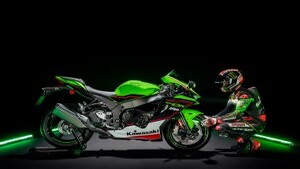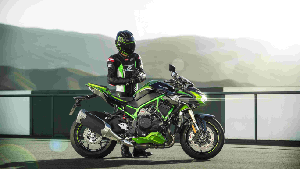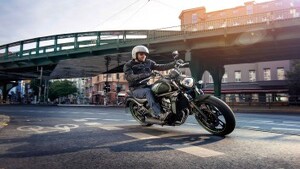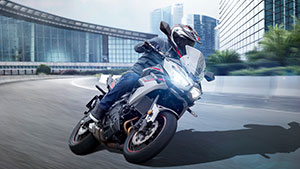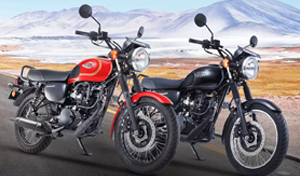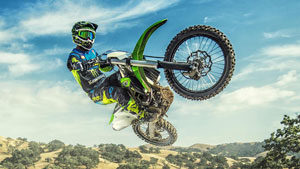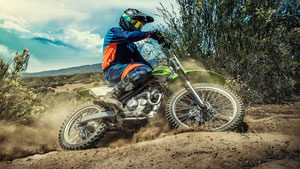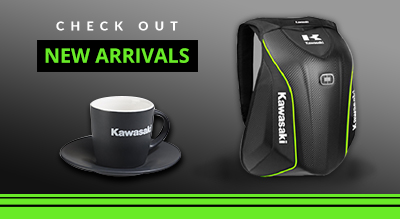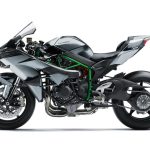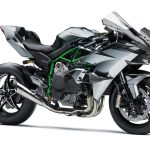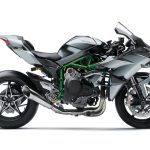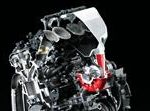2021
Ninja H2R
Starting At
Rs.79,90,000
(Ex-Showroom)
*Actual product may vary from the picture shown here.
*Specification and pricing are subject to change.
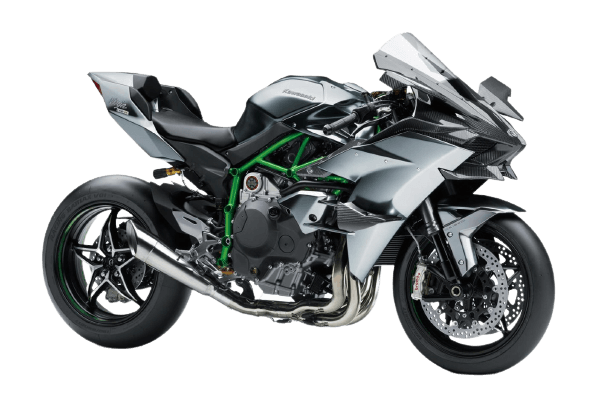
AVAILABLE COLOURS

Mirror Coated Matte Spark Black
Top Features
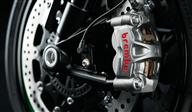
Brembo Brakes

Single-sided Swingarm
A pair of massive ø330 mm Brembo semi-floating discs with a thickness of t5.5 mm deliver superb braking force.
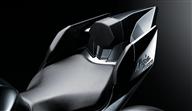
Riding Position & Ergonomics
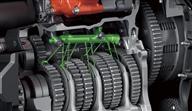
Oil Jets
n the interest of keeping the engine compact and simple, a single lubrication system provides cooling oil for the engine components, supercharger and transmission.

Electronic Throttle Valves
The riding position was designed for riding at ultra-high speed and circuit riding. To help support the rider during intense acceleration, hipsupporting pads flank the rear of the seat. The hip support is adjustable 15 mm backward to suit rider size.

Kawasaki Original Silver-mirror Paint

Öhlins TTX36 Rear Suspension
– Increased rear stability
– excellent damping and increased riding comfort
– Increased rear stability
– Superb feedback from the road
– More stability at speed.

Aerodynamically-designed Bodywork
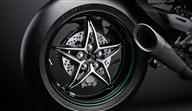
Exhaust System
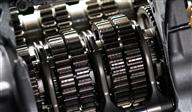
Dog-ring Transmission

Trellis Frame
Using a trellis frame construction offered an elegant, lightweight solution to meeting the performance requirements for the chassis.

Downforce Generation

Bosch IMU
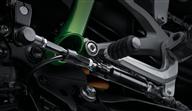
KQS (Kawasaki Quick Shifter)
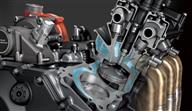
Cylinder Head
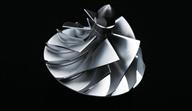
In-house-designed Supercharger

Ram Air Intake
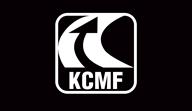
KCMF (Kawasaki Cornering Management Function)
– KTRC (including traction, wheelie and sliding control)
– KLCM
– KIBS (including pitching and corner braking control)
– Kawasaki Engine Brake Control
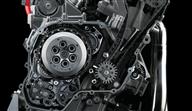
Hydraulic Clutch & Back-torque Limiter

Power Unit Designed to Withstand 300 PS Output
– KTRC (including traction, wheelie and sliding control)
– KLCM
– KIBS (including pitching and corner braking control)
– Kawasaki Engine Brake Control
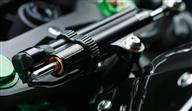
Öhlins Electronic Steering Damper
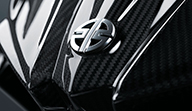
Kawasaki River Mark
– KTRC (including traction, wheelie and sliding control)
– KLCM
– KIBS (including pitching and corner braking control)
– Kawasaki Engine Brake Control

Bank angle display
SPECIFICATIONS
| Engine & Transmission | |
| Type | Liquid-cooled, 4-stroke In-Line Four with Supercharger |
| Displacement | 998 cc |
| Bore and Stroke | 76.0 mm x 55.0 mm |
| Compression ratio | 8.3:1 |
| Valve system | DOHC, 16 valves |
| Fuel system | Fuel injection: Ø 50 mm x 4 with dual injection |
| Fuel Type / Minimum Octane Rating | Unleaded petrol/RON95 |
| Ignition | Digital |
| Starting | Electric |
| Lubrication | Forced lubrication, wet sump with oil cooler |
| Transmission | 6 Speed, Return |
| Maximum power | 228.0 kW {310 PS} / 14,000 rpm |
| Maximum power with Ram Air | 240.0 kW {326 PS} / 14,000 rpm |
| Maximum torque | 165.0 N.m {16.8 kgf.m} / 12,500 rpm |
| Electronic Rider Aid | |
| Dimensions & Chassis | |
| Frame Type | Trellis, high-tensile steel with Swingarm Mounting Plate |
| Rake / Trail | 25.1° / 108 mm |
| Tyre – Front | 120/600 R17 |
| Tyre – Rear | 190/650 R17 |
| Wheelbase | 1,450 mm |
| Ground clearance | 130 mm |
| Seat height | 830 mm |
| Curb mass | 216 kg |
| Fuel capacity | 17 Litres |
| Overall Dimensions (L x W x H) | 2,070 x 850 x 1,160 mm |
| Brakes & Suspension | |
| Front / Wheel Travel | Ø 43 mm inverted fork with rebound and compression damping, spring preload adjustability and top-out springs / 120 mm |
| Rear / Wheel Travel | New Uni-Trak, Öhlins TTX36 gas-charged shock with piggyback reservoir, compression and rebound damping, spring preload adjustability and top-out spring / 135 mm |
| Brake – Front | Dual Semi-Floating 330 mm Brembo Discs |
| Caliper – Front | Dual Radial-Mount, Brembo M50 Monobloc Opposed 4-Piston |
| Brake – Rear | Single 250 mm Disc. |
| Caliper – Rear | Brembo, Opposed 2-Piston |

